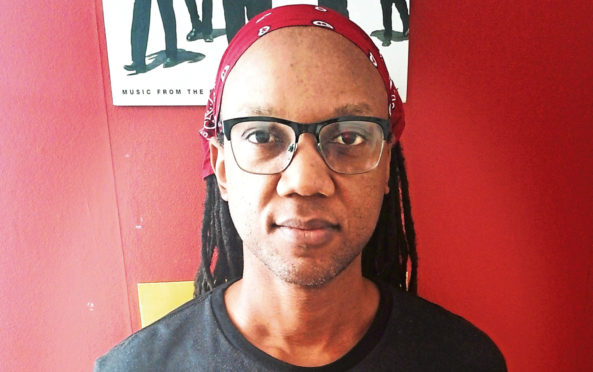
Edinburgh podiatrist Tendai Huchu landed on his feet when he decided to become an author.
The Zimbabwe-born writer’s debut, The Hairdresser Of Harare, launched in 2010 and was followed by The Maestro, The Magistrate & The Mathematician.
Now going under the pen name TL Huchu, the winner of the Nommo Award for African science fiction and fantasy is keeping readers on their toes with the first novel in the Edinburgh Nights series.
The Library Of The Dead – set in a dystopian Scottish capital and pitched as a cross between Stranger Things and Ben Aaronovitch’s Rivers Of London – is a tale for young adults and beyond. It features Ropa, a school dropout who earns a crust by talking to the city’s dead and carrying their messages to the living.
Add an underground occult library beneath Calton Hill (philosopher David Hume’s mausoleum is its entrance), a bit of Scottish pragmatism, and a healthy dose of Zimbabwean magic, and it seems TL can’t put a foot wrong.
The bestselling creator of Rivers Of London – the “DNA” of which Huchu admits to pinching for his latest offering – is among the book’s fans, describing it as “fast-moving, entertaining” and “beautifully written.”
Speaking from Wester Hailes, the 38-year-old Huchu reveals that while he already had the main character and a potential setting for the book – a library in his home of Bindura, a small town 80km from the capital Harare – Edinburgh, with its profound and palpable history, made for a “better canvas”.
He chuckles: “The basic schemer for the book, I’ll admit it, I stole from Ben Aaronvitch’s Rivers Of London; I call it cultural appropriation. But I know Ben, and he is a friend, so he’s not about to sue me. You transcribe your own aesthetics and sensibilities on to that scheme and create something new and wholly original.
“I am at a stage where I am happy to admit that the DNA of what I am doing was pinched from his work.”
With all of the elements in place, Huchu, who has been shortlisted for the Caine Prize and the Grand Prix de L’Imaginaire, says: “The writing just flowed out of me.
“The Library itself is hidden under Calton Hill. I played with locations that are already known and reimagined them.”
It is, he says, a fun novel but one not without significance. Ropa’s conversations with the dead have a purpose.
“These figures from the past, they still live on, they have shaped the present in which we live and that is what I am trying to show.
“The ghosts themselves represent things that have been done in the past that continue to resonate today.”
The book is dedicated to Huchu’s mother, Josephine, a nurse who sadly passed away in 2017. What would she make of it?
“She would love it,” he beams. “All writers tell ourselves that ultimately your mum will like everything you do.”
The author, one of the judges on last year’s Scottish Book Trust New Writers’ Awards, laughs: “When it comes to my status in the literary world I can at least say I am the best writer from Bindura.
“I once wanted to say I am the most important Zimbabwean writer in Scotland, and then I realised that Alexander McCall Smith was born in Bulawayo, so I have to limit myself to Bindura, because how do you compete with that?”
The Library Of The Dead by TL Huchu, Tor, £14.99

Enjoy the convenience of having The Sunday Post delivered as a digital ePaper straight to your smartphone, tablet or computer.
Subscribe for only £5.49 a month and enjoy all the benefits of the printed paper as a digital replica.
Subscribe